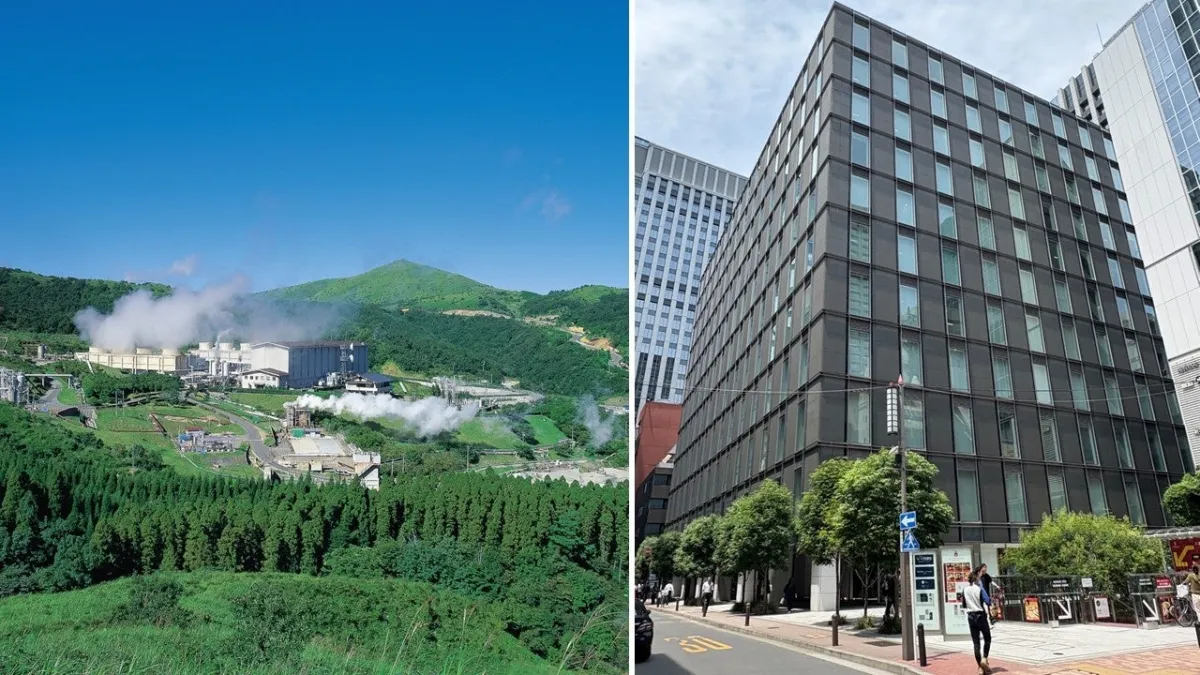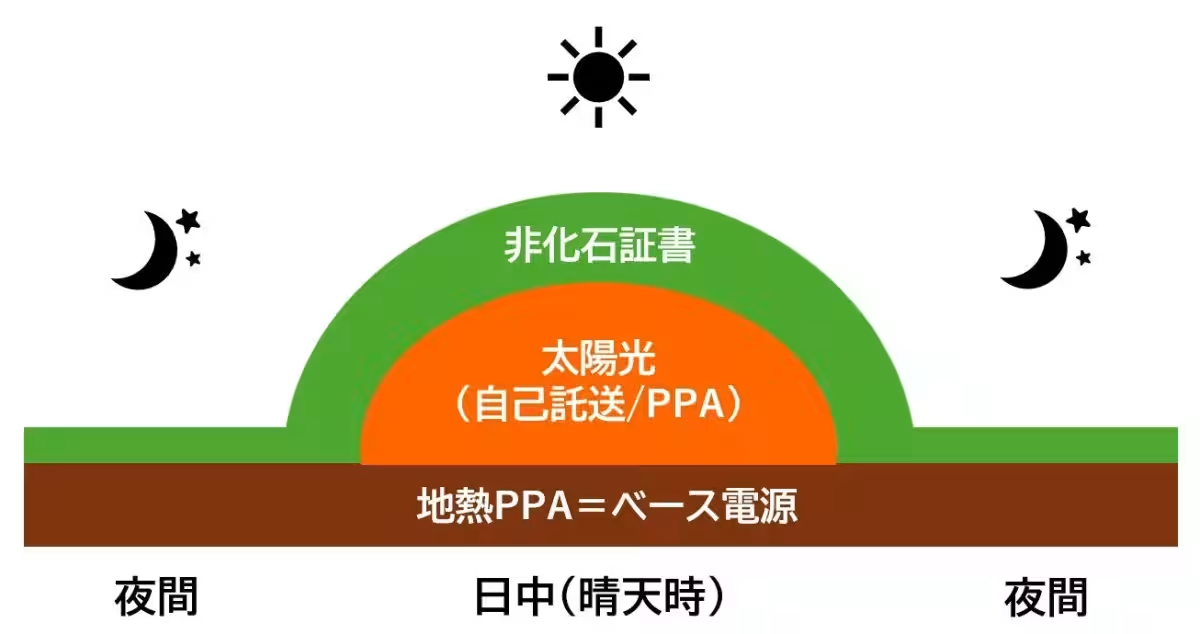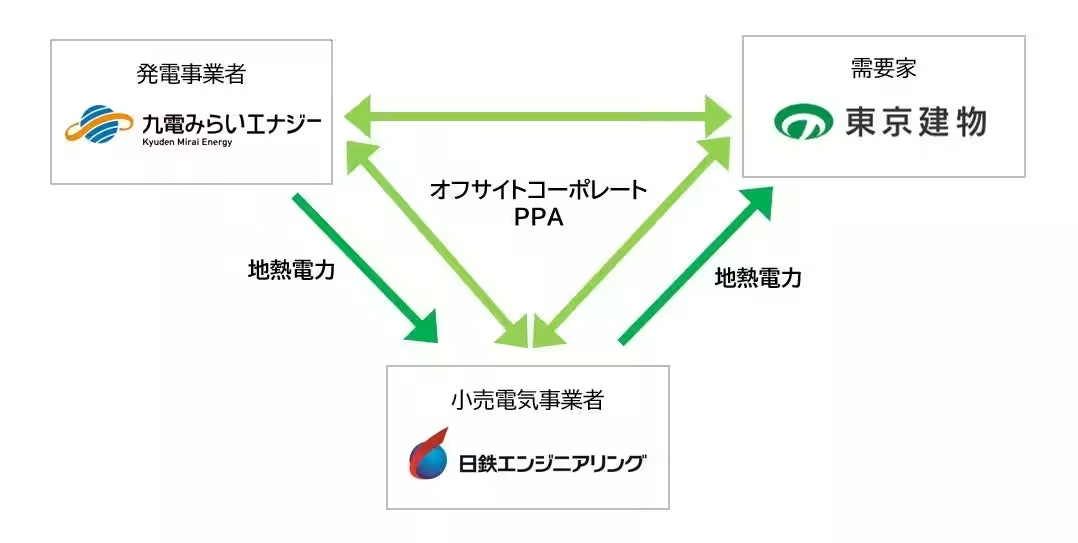

Tokyo Tower's Pioneer Effort: Geothermal Energy for Corporate PPA in Offices
Introduction
In a remarkable stride towards sustainable energy practices, Tokyo Tatemono Co., Nittetsu Engineering Co., and Kyushu Electric Mirai Energy Co. have announced the implementation of a pioneering off-site corporate Power Purchase Agreement (PPA) based on geothermal energy in Tokyo's office buildings. This initiative marks the first of its kind in the real estate sector, showcasing the potential for renewable energy integration within urban environments.
Background and Importance of Geothermal Energy
As of fiscal 2023, renewable energy contributes to 26.1% of Japan's overall electricity generation. Among various renewable sources, geothermal energy stands out due to its ability to produce power consistently, independent of weather conditions. Its capacity utilization rate is remarkably high at 82%, surpassing that of hydropower, wind, and biomass energy. Given this backdrop, the recent initiative aims to enhance the share of self-supplied renewable energy in office electricity consumption by adopting stable geothermal power as a 'base electricity' source. The plan includes using geothermal energy during off-peak hours and complementing it with solar energy during peak office hours.
Benefits of Renewables in Urban Areas
Tokyo's urban landscape, characterized by closely-packed buildings, presents limited opportunities for solar panel installation, making geothermal energy an attractive alternative. Recent advancements such as perovskite solar cells are paving the way for localized energy generation, yet there remains an urgent need for carbon neutrality efforts in energy-intensive metropolitan regions. By employing geothermal energy, this initiative contributes to carbon-neutral goals crucial for Tokyo's environmental sustainability.
Implementation Structure
The geothermal energy for the PPA is sourced from four geothermal power stations owned by Kyushu Electric Mirai Energy, namely:
- - Hachiojima Power Station (Kusu, Oita)
- - Takijyo Power Station (Kusu, Oita)
- - Yamakawa Power Station (Ibusuki, Kagoshima)
- - Okiru Power Station (Kirishima, Kagoshima)
- - Tokyo Tatemono Yaesu Building (Chuo, Tokyo)
- - Tokyo Tatemono Yaesu Sakura-dori Building (Chuo, Tokyo)
- - Osaki Center Building (Shinagawa, Tokyo)
Projected Outcomes
The expected impact of this initiative is substantial, with an estimated 900 MWh of electricity being supplied annually, resulting in a CO2 reduction of approximately 360 tons — equivalent to the amount absorbed by 26,000 cedar trees in one year. Among the participating buildings, the Tokyo Tatemono Yaesu Building has a solar panel installation on its eco-friendly logistics facility roof, enabling it to achieve a 100% renewable energy usage by effectively recycling surplus renewable power. This new initiative is projected to elevate the building's renewable energy self-sufficiency rate from roughly 19% to around 27%.
Corporate Efforts Towards Decarbonization
Tokyo Tatemono is driven by a long-term vision to become a next-generation developer, balancing societal problem resolution with corporate growth. They are committed to 100% renewable energy usage by fiscal 2050 across all business activities, and in their building business, achieving the same by 2030. Initiatives include solar panel installations on their logistics facility, aimed at decentralizing energy throughout the city’s landscapes.
Nittetsu Engineering, rooted in steel production, extends its expertise into areas such as environment and energy. Their contributions to renewable energy include facilitating PPA-driven sourcing and promoting local energy consumption solutions from environmental plants.
Kyushu Electric Mirai Energy aspires to be a world-leading green energy company, harnessing its unique position as the only renewable energy provider with five major electricity sources in Japan to address diverse societal energy needs and enhance renewable energy adoption.
Conclusion
This innovative geothermal PPA initiative in Tokyo marks a significant milestone in the integration of renewable energy within the urban fabric. It not only represents a strategic business collaboration aimed at sustainability but also provides a scalable model for other cities facing similar energy challenges. The commitment shown by Tokyo Tatemono, Nittetsu Engineering, and Kyushu Electric Mirai Energy reflects a forward-thinking approach to urban energy solutions that could inspire future endeavors in the real estate and energy sectors.



Topics Energy)










【About Using Articles】
You can freely use the title and article content by linking to the page where the article is posted.
※ Images cannot be used.
【About Links】
Links are free to use.